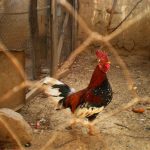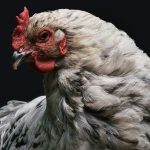Cold weather can have a significant impact on egg production in hens. When temperatures drop, hens tend to eat more to maintain their body temperature, which can lead to a decrease in egg production. Additionally, cold weather can cause stress in hens, which can also result in a decrease in egg laying. It is important for poultry farmers to understand the impact of cold weather on egg production in order to implement strategies to mitigate its effects.
In cold weather, hens may also experience a decrease in their metabolism, which can lead to a decrease in egg production. This is because hens require more energy to stay warm in cold temperatures, leaving less energy available for egg production. Furthermore, cold weather can also affect the quality of eggs produced, as hens may lay smaller or misshapen eggs due to the stress and strain of the cold. Understanding these impacts is crucial for poultry farmers to make informed decisions about how to best care for their hens during the winter months.
Table of Contents
- 1 Providing Proper Nutrition and Hydration for Hens in Cold Weather
- 2 Creating a Cozy and Insulated Coop Environment
- 3 Managing Light Exposure for Egg Production in Winter
- 4 Implementing Heating Strategies for Cold Weather Egg Production
- 5 Monitoring and Managing Health and Wellness of Hens in Cold Weather
- 6 Adjusting Egg Collection and Storage Practices for Winter Months
Providing Proper Nutrition and Hydration for Hens in Cold Weather
Proper nutrition and hydration are essential for hens to maintain egg production during cold weather. In order to support their increased energy needs, hens should be provided with a high-quality, balanced diet that is rich in protein and essential nutrients. Additionally, it is important to ensure that hens have access to clean, fresh water at all times, as dehydration can have a negative impact on egg production. In cold weather, water sources can freeze, so it is important to regularly check and replace frozen water to ensure that hens stay properly hydrated.
Supplementing hens’ diets with additional nutrients such as vitamins and minerals can also help support their immune systems and overall health during the winter months. This can help to mitigate the negative effects of cold weather on egg production and ensure that hens continue to lay high-quality eggs. Providing proper nutrition and hydration for hens in cold weather is essential for maintaining egg production and supporting the overall health and well-being of the flock.
Creating a Cozy and Insulated Coop Environment
Creating a cozy and insulated coop environment is crucial for supporting egg production in cold weather. Insulating the coop can help to maintain a comfortable temperature for hens, which can help to reduce stress and support egg laying. This can be achieved by adding insulation to the walls and roof of the coop, as well as sealing any drafts or gaps that may let cold air in. Additionally, providing plenty of bedding such as straw or wood shavings can help to keep hens warm and comfortable during the winter months.
It is also important to ensure that the coop is well-ventilated, as poor air quality can have a negative impact on hens’ health and egg production. Proper ventilation can help to remove excess moisture and ammonia from the coop, which can help to prevent respiratory issues and support overall wellness in hens. Creating a cozy and insulated coop environment is essential for supporting egg production in cold weather and ensuring the health and well-being of the flock.
Managing Light Exposure for Egg Production in Winter
Managing light exposure is an important factor in supporting egg production during the winter months. Hens require a certain amount of light each day in order to maintain their normal laying patterns, and the shorter days of winter can disrupt this natural cycle. Supplemental lighting can be used to extend the amount of light hens receive each day, which can help to support consistent egg production throughout the winter months.
It is important to provide hens with a gradual increase in light exposure in the morning and evening, rather than sudden changes in lighting, as this can cause stress and disrupt their natural rhythms. Additionally, it is important to provide hens with a period of darkness each day to allow them to rest and recharge. Managing light exposure for egg production in winter is essential for supporting consistent egg laying and maintaining the overall health and well-being of the flock.
Implementing Heating Strategies for Cold Weather Egg Production
Implementing heating strategies can help to support egg production in cold weather. While hens are generally able to tolerate cold temperatures, extreme cold can have a negative impact on their health and egg production. Providing supplemental heat in the coop can help to maintain a comfortable temperature for hens, which can support their overall wellness and egg laying.
There are several options for providing supplemental heat in the coop, including heat lamps, radiant heaters, or heated pads. It is important to ensure that any heating devices are installed safely and securely to prevent fire hazards or injury to the hens. Additionally, it is important to monitor the temperature in the coop regularly to ensure that it remains within a comfortable range for the hens. Implementing heating strategies for cold weather egg production is essential for supporting the health and well-being of the flock and maintaining consistent egg production throughout the winter months.
Monitoring and Managing Health and Wellness of Hens in Cold Weather
Monitoring and managing the health and wellness of hens is crucial for supporting egg production in cold weather. Cold temperatures can increase the risk of respiratory issues, frostbite, and other health concerns in hens, so it is important to regularly check on the flock and address any issues promptly. This includes checking for signs of illness or injury, as well as monitoring their overall behavior and well-being.
In addition to regular health checks, it is important to provide hens with opportunities for exercise and mental stimulation during the winter months. This can help to reduce stress and boredom, which can have a positive impact on their overall health and egg production. Providing enrichment activities such as perches, toys, or access to outdoor areas (weather permitting) can help to support the health and wellness of hens during cold weather.
Adjusting Egg Collection and Storage Practices for Winter Months
Adjusting egg collection and storage practices is important for maintaining egg quality during the winter months. Cold temperatures can cause eggs to freeze, which can lead to cracks or other damage that affects their quality. It is important to collect eggs frequently throughout the day to prevent them from freezing, as well as to store them properly to maintain their freshness.
Eggs should be stored in a cool, dry place with consistent temperatures to prevent spoilage. It is also important to handle eggs gently and avoid sudden temperature changes, as this can cause condensation that can lead to bacterial growth. Adjusting egg collection and storage practices for winter months is essential for maintaining high-quality eggs and ensuring that they remain safe for consumption. By implementing these strategies, poultry farmers can support consistent egg production and maintain high-quality eggs throughout the winter months.
Meet Walter, the feathered-friend fanatic of Florida! Nestled in the sunshine state, Walter struts through life with his feathered companions, clucking his way to happiness. With a coop that’s fancier than a five-star hotel, he’s the Don Juan of the chicken world. When he’s not teaching his hens to do the cha-cha, you’ll find him in a heated debate with his prized rooster, Sir Clucks-a-Lot. Walter’s poultry passion is no yolk; he’s the sunny-side-up guy you never knew you needed in your flock of friends!







